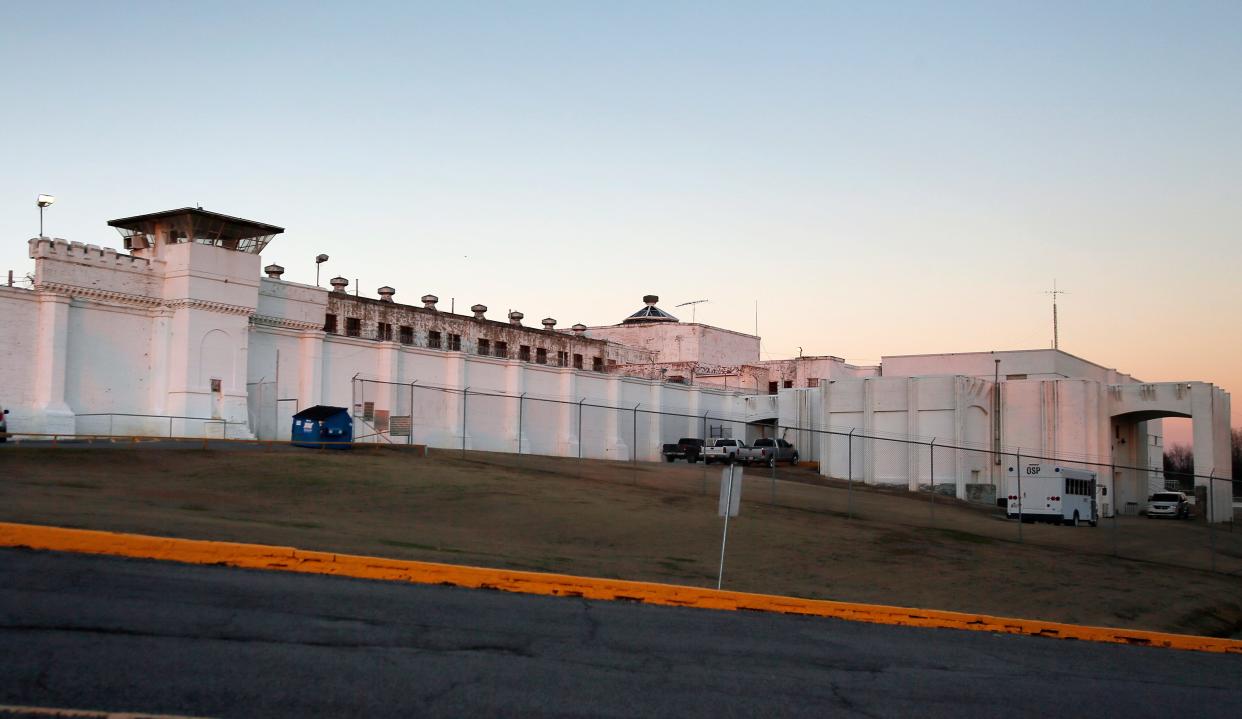Could Oklahoma death penalty drug manufacturers be shielded from public scrutiny?

- Oops!Something went wrong.Please try again later.
Oklahoma lawmakers on Wednesday advanced legislation that would shield those involved in executions from public scrutiny.
Senate Bill 1702 specifically shields the entities who produce or supply the drugs used in Oklahoma’s execution process from discovery in civil and criminal proceedings. While the identities of those participating in executions have long been protected, the bill also expands protections to any participating entities.
The bill extends the confidentiality to documents, records, photographs and any other information that the head of the Department of Corrections determines may lead to the identification of any person or entity that participates in the execution process, according to the bill.
Rep. Rande Worthen, R-Lawton, the House author, said the bill clarifies that such information shall “remain inaccessible to outside members.”
He said there’s been issues with people trying to work around the existing law to find out the identities of individuals tasked with carrying out executions or the names of manufacturers or pharmacies that provide the drugs.
More: This Oklahoma death row inmate had a novel reason for asking for an execution stay. He still lost
The change to state law will ensure their identities are kept secret and protect them from harassment, Worthen said.
“They have a hard enough job as it is without third parties being able (to), trying to access that information, picket their home, make death threats to their families or things like that and that’s what we’re trying to prevent,” he said.
Rep. Jason Lowe, D-Oklahoma City, said he agrees that the information of a person who carries out an execution should be protected.
But he said Oklahoma has had issues as far as drugs used during the death penalty process. He questioned whether that information would remain confidential.
“As far as the drugs are concerned, I think that’s kind of problematic that that’s going to be basically a secret,” Lowe said.
Issues began over executions in 2014 and 2015
The state’s problems with executions started in 2014 when officials bungled the execution of Clayton Lockett, who took 43 minutes to die. Lockett writhed and appeared to be conscious. A state investigation found that an IV used to administer the drugs had unknowingly come loose.
In January 2015, state officials next used a non-approved drug to execute Charles Warner.
Rep. John George, R-Newalla, said the type of drugs used to carry out executions will continue to be available, it’s just the manufacturers or pharmacies providing those would not.
More: Oklahoma could halt executions as death penalty moratorium bill advances
The measure passed a House committee by a 6-1 vote. It now heads to the full House.
The full Senate, largely along party lines, previously approved the measure by a 38-8 vote.
This article originally appeared on Oklahoman: OK legislation would shield execution drug manufacturers from scrutiny

